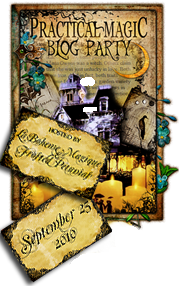And then let it go and watched it fall and listened to it breaking?
I have held back time and tide when all the world was plenty,
But now my hands are open wide, open wide and empty.
(Karine Polwart, 2005)
(Prayers of the Goddess Gaia)
(ByDesiree Delgado)
http://www.flickr.com/photos/desireedelgado/3703359639/
Coming to the end of another semester, I stop to reflect on where I've been and where I'm going. I've done much good work on my dissertation in the last three months, finally overcoming the abject terror and lethargy that gripped me every time I even thought about writing. Now, every day I easily contemplate and nuance the intricacies of the arguments I aim to weave about the intersection of Mormonism and the New Spirituality. I'm finally clear that that is the subject of my project. It isn't about New Age or Contemporary Pagan Studies per se. Rather, it's about where those I've called "New Age Mormon Pagans" fit in relation to the larger American spiritual/religious context.
As I write, the path appears increasingly clear: A review of literature about "spirituality" in America points intuitively to the need to include commentary on the importance of experience in American religious history, which has led most Americans to expect (even demand) the right to cultivate a fulfilling--and unmediated--spiritual life. It's interesting to see how sociological investigation of what was happening to "religion" during the 1960s and 70s segued into the 1980s and 90s concept of spiritual marketplace (Wade Clark Roof, 1999) and religious economies/rational choice (Stark & Bainbridge, 1985; Stark & Finke, 2005) theories.
Even if, like Mark Oppenheimer (Knocking on Heaven's Door: American Religion in the Age of Counterculture, 2003), you think "alternative" religions had very little impact on Americans and that New Age" spirituality as just so much "silliness" (p. 228) (preferring instead to put your money on the influence of "mainline" religious institutions), experience is still the watchword. The subversive power of the counterculture, though according to Oppenheimer it produced only "aesthetic" and "formalistic" change, was that it created an entirely new experience of traditional religion (p. 220).
Even if, like Mark Oppenheimer (Knocking on Heaven's Door: American Religion in the Age of Counterculture, 2003), you think "alternative" religions had very little impact on Americans and that New Age" spirituality as just so much "silliness" (p. 228) (preferring instead to put your money on the influence of "mainline" religious institutions), experience is still the watchword. The subversive power of the counterculture, though according to Oppenheimer it produced only "aesthetic" and "formalistic" change, was that it created an entirely new experience of traditional religion (p. 220).
Regardless of whether the women I encounter in my research consider themselves orthodox or heretical Mormons (or not Mormons at all), they are all engaged in the search for a more authentic self-expression in their spiritual lives. In the end, experience is the premium channel.
In addition to getting power around my writing, I have also been led to question the degree to which I am fully self-expressed in other areas of my life. What experience of the world am I claiming for myself? Does a scholar who studies historically new and alternative religions (including Mormonism) ever get to be powerfully and fully self-expressed? If so, what might that self-expression look like?
It's no wonder that I've put off situating myself in relation to my work in my Preface. Have I held onto academic political correctness with white knuckles, assuming the position so to speak, just hoping to avoid the hordes who perpetually mislabel critical analysis as "misunderstanding."
It's no wonder that I've put off situating myself in relation to my work in my Preface. Have I held onto academic political correctness with white knuckles, assuming the position so to speak, just hoping to avoid the hordes who perpetually mislabel critical analysis as "misunderstanding."
I've come to realize I'm consciously choosing something different, a different way of being. I am no longer so interested in safety. I've let go of the net and what lies broken was in any case no longer interesting or useful.







